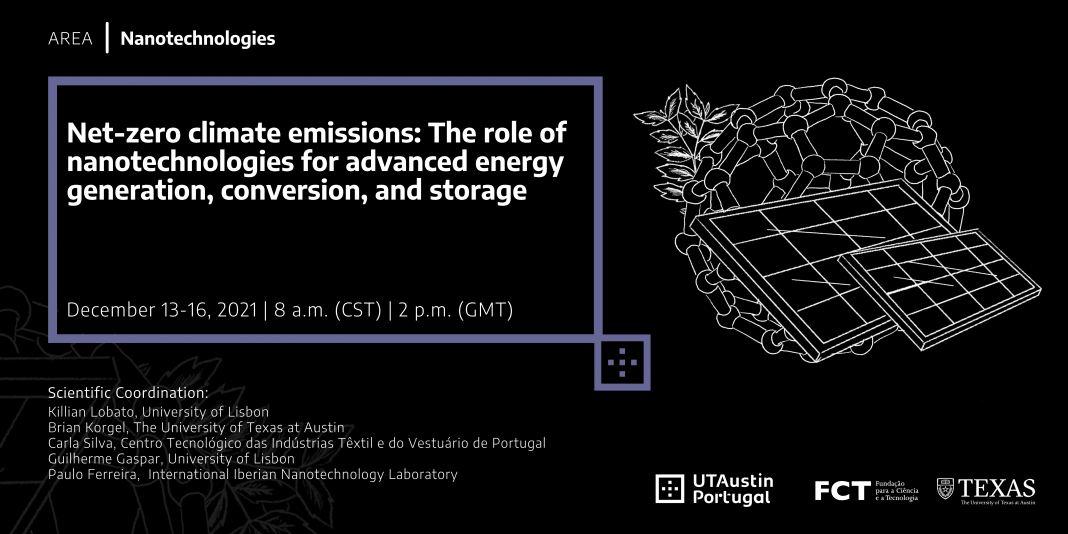Registrations closed
The UT Austin Portugal Program is organizing a four-half day online training in Net-zero climate emissions: The role of nanotechnologies for advanced energy generation, conversion, and storage, under the scientific coordination of Killian Lobato (University of Lisbon, Portugal), Brian Korgel (the University of Texas at Austin, USA), Carla Silva (CITEVE, Portugal), Guilherme Gaspar (University of Lisbon, Portugal) and Paulo Ferreira (INL and IST, Portugal).
The purpose of this training program is to provide industry and academia the technological and scientific pathways required for deployment of sustainable cost-effective large scale energy storage and conversion powered by renewable energies.
It seeks to promote closer interaction between academia and industry while fomenting future collaborations through panel and post session discussions and quizzes.
The training takes place on Zoom from December 13 until December 16.
Who can register?
The training program is open to both people in academia and in industry.
Attendees from academia (undergraduate and graduate students, as well as postdocs and researchers) are expected to be already working in the area proposed for this advanced training, or at least be interested in pivoting their activities into this area.
Additionally, attendees from industry should also already be involved in the area but may also belong to companies wanting to understand how they can bring their expertise into the area.
What should participants expect to learn?
- For people in academia, an insight into a new burgeoning area of research, thus allowing them to pivot their career into this area. Additionally, the program offers an opportunity to listen to industrial players and better understand the opportunities and challenges the addressed topics create for businesses.
- For people in industry, this will provide an opportunity to showcase their companies to the academic sector. It can serve to highlight the current and future R&D activities of interest. In addition, the companies will also gather insight into where academia is focusing its research activities.
Agenda:
| December 13 | The European Green Deal – The technological requirements for Net-Zero climate emissions by 2050 | |||
| Moderated by Guilherme Gaspar and Killian Lobato | |||
| Lisbon time | Austin time | Session | Speakers |
|
2.00 p.m.
|
08.00 a.m. | Opening Remarks | |
|
2.10 p.m.
|
08.10 a.m. |
From COP26 to Climate Pact Ambassadors
|
Claudio Pistidda |
| 2.40 p.m. | 08.40 a.m. |
Models for the simultaneous decarbonization of power generation and road transport: Portugal as an example
|
António Vallêra |
| 3.30 p.m. | 09.30 a.m. |
American Approaches to Energy in the Green New Deal
|
JR DeShazo |
| 4.00 p.m. | 10.00 a.m. |
Funding opportunities in Horizon Europe – From excellent science to innovation in nanotech and energy systems
|
João Ribau |
| 4.30 p.m. | 10.30 a.m. | Roundtable | Peter Lund & All |
| 5.00 p.m. | 11.00 a.m. | End | |
| December 14 | Photovoltaics, current market and industry, and a technological outlook | |||
| Moderated by Killian Lobato and Guilherme Gaspar | |||
| Lisbon time | Austin time | Session | Speakers |
|
2.00 p.m.
|
08.00 a.m. | Opening Remarks | |
|
2.10 p.m.
|
08.10 a.m. |
Carbon based printable perovskite solar cell technology – An opportunity for low-cost bulk electricity generation
|
Syed Hashmi
|
| 2.35 p.m. | 08.35 a.m. |
Charge based Carrier Selective Passivated contacts for silicon solar cells
|
Gurleen Kaur
|
| 3.00 p.m. | 09.00 a.m. |
Ultra-thin film solar cell: its theory and experimental demonstration
|
Yong-Hang Zhang
|
| 3.25 p.m. | 09.25 a.m. |
Silicon PV vs Thin Film Cadmium Telluride PV (cancelled)
|
Tushar Shimpi
|
| 3.40 p.m. | 09.40 a.m. |
From microtechnology to nanotechnology in solar cells
|
Pedro Salomé
|
| 3.55 p.m. | 09.55 a.m. |
Electrification Without Limitation Opportunities in PV Manufacturing
|
Stephan de Luca |
| 4.10 p.m. | 10.10 a.m. |
PV growth and integration: Affordable, flexible (thin) and high-efficiency silicon solar cells
|
André Augusto |
| 4.30 p.m. | 10.30 a.m. |
Roundtable
|
All |
| 5.00 p.m. | 11.00 a.m. |
End
|
|
| December 15 | Energy storage (electrochemical batteries and supercapacitors, other potential technologies) | |||
| Moderated by Paulo Ferreira and Guilherme Gaspar |
|||
| Lisbon time | Austin time | Session | Speakers |
|
2.00 p.m.
|
08.00 a.m. | Opening Remarks | |
|
2.10 p.m.
|
08.10 a.m. |
Asymmetric supercapacitors for electrochemical energy storage: trends and opportunities
|
Fátima Montemor |
| 2.40 p.m. | 08.40 a.m. |
European Battery Ecosystem – boosted by the IPCEI endeavour
|
Uwe Seidel |
| 3.10 p.m. | 09.10 a.m. |
Microstructural Design Principles for Achieving Stable Electrochemical Interfaces for Metal Anodes
|
David Mitlin
|
| 3.40 p.m. | 09.40 a.m. |
Towards increasing the energy density of symmetric carbon-based supercapacitors operating in aqueous electrolytes
|
Joana Baptista
|
| 4.10 p.m. | 10.10 a.m. |
Roundtable
|
Upul Wijayantha & Jorge Correia & All |
| 5.10 p.m. | 11.10 a.m. | End | |
| December 16 | Green fuel generation using renewable energy (H2 generation, synthetics fuels) | |||
| Moderated by Brian Korgel and Killian Lobato | |||
| Lisbon time | Austin time | Session | Speakers |
|
2.00 p.m.
|
08.00 a.m. | Opening Remarks | |
|
2.10 p.m.
|
08.10 a.m. |
H2 production to meet decarbonisation
|
Upul Wijayantha
|
| 2.50 p.m. | 08.50 a.m. |
Production and use of H2 as decarbonization tool
|
Vanesa Gil
|
| 3.20 p.m. | 09.20 a.m. |
High-performance catalysts and advanced cell design for hydrogen production via low-temperature water electrolysis
|
Lifeng Liu
|
| 3.45 p.m. | 09.45 a.m. |
Nanostructuring metal hydride-based systems for hydrogen storage
|
Claudio Pistidda
|
| 4.05 p.m. | 10.05 a.m. |
Research to Support Texas Green Hydrogen
|
Robert Hebner
|
| 4.20 p.m. | 10.20 a.m. |
Roundtable
|
All |
| 5.00 p.m. | 11.00 a.m. |
End
|
|
Important information:
- The registration period runs until December 9 unless all seats have been taken earlier. Until November 24, we will be accepting registrations only from participants affiliated with Portuguese institutions or to UT Austin. Participants from institutions located elsewhere may apply for the course from November 25 onwards, with seats being given on a first-come-first-serve basis.
- Participation is free of charge. Kindly note, however, that to put on this course, we mobilized several people and incurred expenses. Therefore, if you register at the event, we expect you to attend it – as when we assign a seat to someone, we might be preventing other people from participating as vacancies are limited.
- Participants will be sent a link to the session 2 hours before the start time. If you do not receive it, please contact us at events@utaustinportugal.org.
- Since this course is available globally, use this time zone converter to know what time the course is starting in your location.
For any further queries, please send an email to events@utaustinportugal.org.
About the speakers:
André Augusto, Arizona State University (USA)
 Dr. André Augusto received his Ph.D. in Sustainable Energy Systems in 2013 from University of Lisbon in collaboration with Massachusetts Institute of Technology (MIT). During his Ph.D. he developed a new CVD process to grow kerfless solar-grade silicon ribbons from a gas phase, and he studied defects and thermal-induced stresses in crystalline silicon at MIT Photovoltaic Research Laboratory. He also worked extensively in Building Physics and Net Zero Energy Buildings (NZEB). Today, he is an Associate Research Scientist in the School of Electrical, Computer and Energy Engineering at Arizona State University (ASU) and the Head of Silicon Heterojunction Research at ASU’s Solar Power Laboratory. He is leading multiple projects related with silicon solar cells, module reliability, PV systems and sustainability. He experimental demonstrated a silicon device with open-circuit voltage over 760 mV and bandgap voltage offset below 0.35 V. Nowadays is exploring new ways to advance silicon-based solar cells, for example by using thinner (and flexible) silicon substrates. His vision is to expand the realm of photovoltaics and other energy technologies, make them more adaptable and resilient, helping to promote sustainability and energy equity. Dr. Augusto is also the industry liaison of PV Foundry, a project led by ASU in collaboration with Georgia Tech and funded by The U.S. Dept. of Energy to support PV manufacturing in the U.S.
Dr. André Augusto received his Ph.D. in Sustainable Energy Systems in 2013 from University of Lisbon in collaboration with Massachusetts Institute of Technology (MIT). During his Ph.D. he developed a new CVD process to grow kerfless solar-grade silicon ribbons from a gas phase, and he studied defects and thermal-induced stresses in crystalline silicon at MIT Photovoltaic Research Laboratory. He also worked extensively in Building Physics and Net Zero Energy Buildings (NZEB). Today, he is an Associate Research Scientist in the School of Electrical, Computer and Energy Engineering at Arizona State University (ASU) and the Head of Silicon Heterojunction Research at ASU’s Solar Power Laboratory. He is leading multiple projects related with silicon solar cells, module reliability, PV systems and sustainability. He experimental demonstrated a silicon device with open-circuit voltage over 760 mV and bandgap voltage offset below 0.35 V. Nowadays is exploring new ways to advance silicon-based solar cells, for example by using thinner (and flexible) silicon substrates. His vision is to expand the realm of photovoltaics and other energy technologies, make them more adaptable and resilient, helping to promote sustainability and energy equity. Dr. Augusto is also the industry liaison of PV Foundry, a project led by ASU in collaboration with Georgia Tech and funded by The U.S. Dept. of Energy to support PV manufacturing in the U.S.
António Vallêra (Portugal)
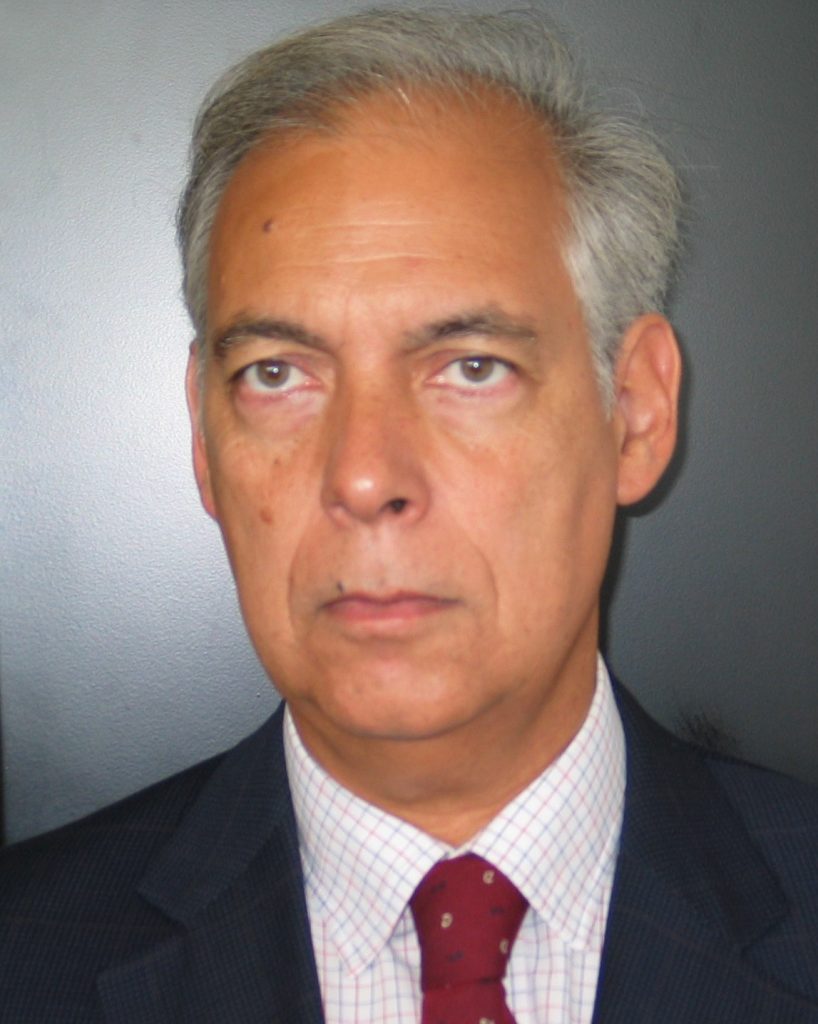 António Vallêra is a retired professor at the University of Lisbon, whose present interests are models for the decarbonization of energy and mobility systems, materials for photovoltaics, and air quality in buildings. He graduated in Electrical Engineering (Technical University of Lisbon, Portugal, 1970) and obtained his PhD degree at the University of Cambridge (Cavendish Laboratory), UK, in 1977, after a short period of professional experience and military service. He joined the University of Lisbon as assistant professor in 1979, and later ascended to the positions of professor, pro-rector, and vice-rector.
António Vallêra is a retired professor at the University of Lisbon, whose present interests are models for the decarbonization of energy and mobility systems, materials for photovoltaics, and air quality in buildings. He graduated in Electrical Engineering (Technical University of Lisbon, Portugal, 1970) and obtained his PhD degree at the University of Cambridge (Cavendish Laboratory), UK, in 1977, after a short period of professional experience and military service. He joined the University of Lisbon as assistant professor in 1979, and later ascended to the positions of professor, pro-rector, and vice-rector.
Claudio Pistidda, Helmholtz Zentrum Hereon (Germany)
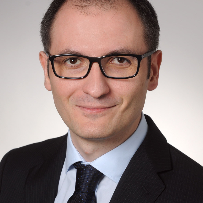 Claudio Pistidda is interested in several different aspects of material chemistry: 1) Chemistry of micro and nanostructured materials, with an emphasis on hydrogen in metal hydrides, complex metal hydrides, and reactive hydride composites. 2) Tuning of multicomponent hydride systems, both kinetic and thermodynamic. 3) Material synthesis using high-energy ball milling devices. 4) Research and development of high-performance, low-cost hydrogen storage systems made from recycled industrial metal waste.
Claudio Pistidda is interested in several different aspects of material chemistry: 1) Chemistry of micro and nanostructured materials, with an emphasis on hydrogen in metal hydrides, complex metal hydrides, and reactive hydride composites. 2) Tuning of multicomponent hydride systems, both kinetic and thermodynamic. 3) Material synthesis using high-energy ball milling devices. 4) Research and development of high-performance, low-cost hydrogen storage systems made from recycled industrial metal waste.
David Mitlin, Walker Department of Mechanical Engineering, the University of Texas at Austin (USA)
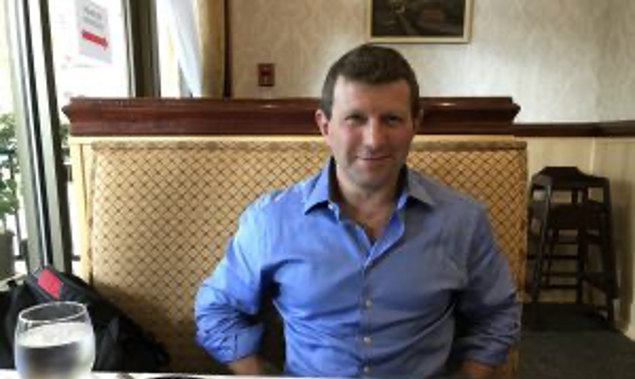 David Mitlin is a Cockrell Endowed Professor at the Walker Department of Mechanical Engineering, The University of Texas at Austin. Prior to that, he was a Professor and General Electric Chair at Clarkson University, and an Assistant, Associate and full Professor at the University of Alberta, Alberta Canada. Dr. Mitlin is an ISI Highly Cited Researcher, having published over 150 journal articles on various aspects of energy storage materials, on metallurgy and corrosion. He also holds 15 granted U.S. patents and 18 more pending full applications, with all of them licensed currently or in the past. He has presented around 125 invited, keynote and plenary talks at various international conferences. Dr. Mitlin is an Associate Editor for Sustainable Energy and Fuels, a Royal Society of Chemistry Journal focused on renewables. He received a Doctorate in Materials Science from U.C. Berkeley in 2000, a M.S. from Penn State in 1996, and a B.S. from RPI in 1995. Dave grew up in upstate NY and in southern CT.
David Mitlin is a Cockrell Endowed Professor at the Walker Department of Mechanical Engineering, The University of Texas at Austin. Prior to that, he was a Professor and General Electric Chair at Clarkson University, and an Assistant, Associate and full Professor at the University of Alberta, Alberta Canada. Dr. Mitlin is an ISI Highly Cited Researcher, having published over 150 journal articles on various aspects of energy storage materials, on metallurgy and corrosion. He also holds 15 granted U.S. patents and 18 more pending full applications, with all of them licensed currently or in the past. He has presented around 125 invited, keynote and plenary talks at various international conferences. Dr. Mitlin is an Associate Editor for Sustainable Energy and Fuels, a Royal Society of Chemistry Journal focused on renewables. He received a Doctorate in Materials Science from U.C. Berkeley in 2000, a M.S. from Penn State in 1996, and a B.S. from RPI in 1995. Dave grew up in upstate NY and in southern CT.
Fátima Montemor, University of Lisbon (Portugal)
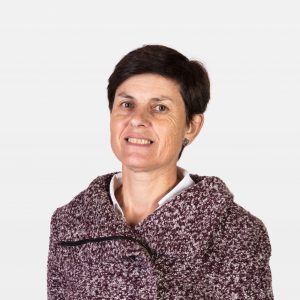 M.F. Montemor graduated in Chemical Engineering at Instituto Superior Técnico (IST), the school of engineering of the Technical University of Lisbon in 1989 and obtained her Ph.D., also from the Technical University of Lisbon, in 1995. Her research objectives are focused in the area of new surface functionalization strategies and development of novel coatings for improved performance of metallic parts (steels, Mg and Al alloys) used in various sectors such as transportation (automotive and aeronautics), construction (building and off shore), biomedical (bioresorbable implants) and energy production (Oil&Gas) and storage (fuel cells, hydrogen storage, hybrid batteries and supercapacitors). This strategy aims at valorising metallic materials in conventional and novel Hi-Tech applications. She is co-author of 17 book chapters, more than 250 scientific papers published in International journals and above 300 works presented in international and national congresses. Her h index is 64. Presently, she is Full Professor in the Department Of Chemical Engineering and researcher at CQE and Vice President for Research and International Affairs at Instituto Superior Técnico From 2017-2019 she served Vice President for Academic Affairs at Instituto Superior Técnico. She serves as vice-chairwon of the TGA3 committee (RFCS-Cordis-EC). She is Immediate Past President of the European Federation of Corrosion for the period 2015-2016. She was President of the Board of Directors of KIC Innoenergy Iberia for the period 2016-2017. Editor of the Elsevier Journal “Applied Surface Science”. Expert of the TGS5 committee (RFCS-Cordis-EC). She is founding member of the company C2C-Newcap. She represents Instituto Superior Técnico in the CoLAb VG Energy Storage.
M.F. Montemor graduated in Chemical Engineering at Instituto Superior Técnico (IST), the school of engineering of the Technical University of Lisbon in 1989 and obtained her Ph.D., also from the Technical University of Lisbon, in 1995. Her research objectives are focused in the area of new surface functionalization strategies and development of novel coatings for improved performance of metallic parts (steels, Mg and Al alloys) used in various sectors such as transportation (automotive and aeronautics), construction (building and off shore), biomedical (bioresorbable implants) and energy production (Oil&Gas) and storage (fuel cells, hydrogen storage, hybrid batteries and supercapacitors). This strategy aims at valorising metallic materials in conventional and novel Hi-Tech applications. She is co-author of 17 book chapters, more than 250 scientific papers published in International journals and above 300 works presented in international and national congresses. Her h index is 64. Presently, she is Full Professor in the Department Of Chemical Engineering and researcher at CQE and Vice President for Research and International Affairs at Instituto Superior Técnico From 2017-2019 she served Vice President for Academic Affairs at Instituto Superior Técnico. She serves as vice-chairwon of the TGA3 committee (RFCS-Cordis-EC). She is Immediate Past President of the European Federation of Corrosion for the period 2015-2016. She was President of the Board of Directors of KIC Innoenergy Iberia for the period 2016-2017. Editor of the Elsevier Journal “Applied Surface Science”. Expert of the TGS5 committee (RFCS-Cordis-EC). She is founding member of the company C2C-Newcap. She represents Instituto Superior Técnico in the CoLAb VG Energy Storage.
Gurleen Kaur, IPVF – Institute Photovoltaics Ile-de-France (France)
 Gurleen Kaur is currently a Post-doctoral Fellow at Institute Photovoltaics Ile-de-France (IPVF) where she is developing novel materials for affordable solar cells. She is an engineer trained in liberal arts, and is passionate about using technology to create impactful sustainable solutions for future. Her goal is to take affordable and clean energy solutions to the doorsteps of every individual on planet. She has been named as the Female Science Talent’21, Future Energy Leader’19 (11 in the world) by BP plc, BP Scholar’19, One Young World Ambassador’19, Youngest International Energy Agency (IEA) Delegate’17, Emerging Young Leader in Asia’15, Young India Fellow’15, etc. for her endeavours.
Gurleen Kaur is currently a Post-doctoral Fellow at Institute Photovoltaics Ile-de-France (IPVF) where she is developing novel materials for affordable solar cells. She is an engineer trained in liberal arts, and is passionate about using technology to create impactful sustainable solutions for future. Her goal is to take affordable and clean energy solutions to the doorsteps of every individual on planet. She has been named as the Female Science Talent’21, Future Energy Leader’19 (11 in the world) by BP plc, BP Scholar’19, One Young World Ambassador’19, Youngest International Energy Agency (IEA) Delegate’17, Emerging Young Leader in Asia’15, Young India Fellow’15, etc. for her endeavours.
Joana Baptista, University of Lisbon (Portugal)
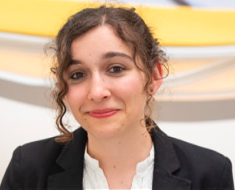
Joana Baptista obtained her MSc in 2016, in Energy and Environmental Engineering, at the Faculty of Sciences of the University of Lisbon. In 2017 she started her PhD in Sustainable Energy Systems, a doctoral programme in partnership with MIT Portugal and the Foundation for Science and Technology. Her work, supervised by Professor Killian Lobato and by Professor Upul Wijayantha, focused primarily on extending the energy density of symmetric carbon-based supercapacitors operating with aqueous electrolytes. Joana was a visiting research student at Loughborough University from 2019 to March 2021 and then, from April 2021 to November 2021, was granted a research associate position in supercapacitor materials and devices, under the supervision of Professor Upul Wijayantha.
João Ribau, ANI – Agência Nacional de Inovação (Portugal)
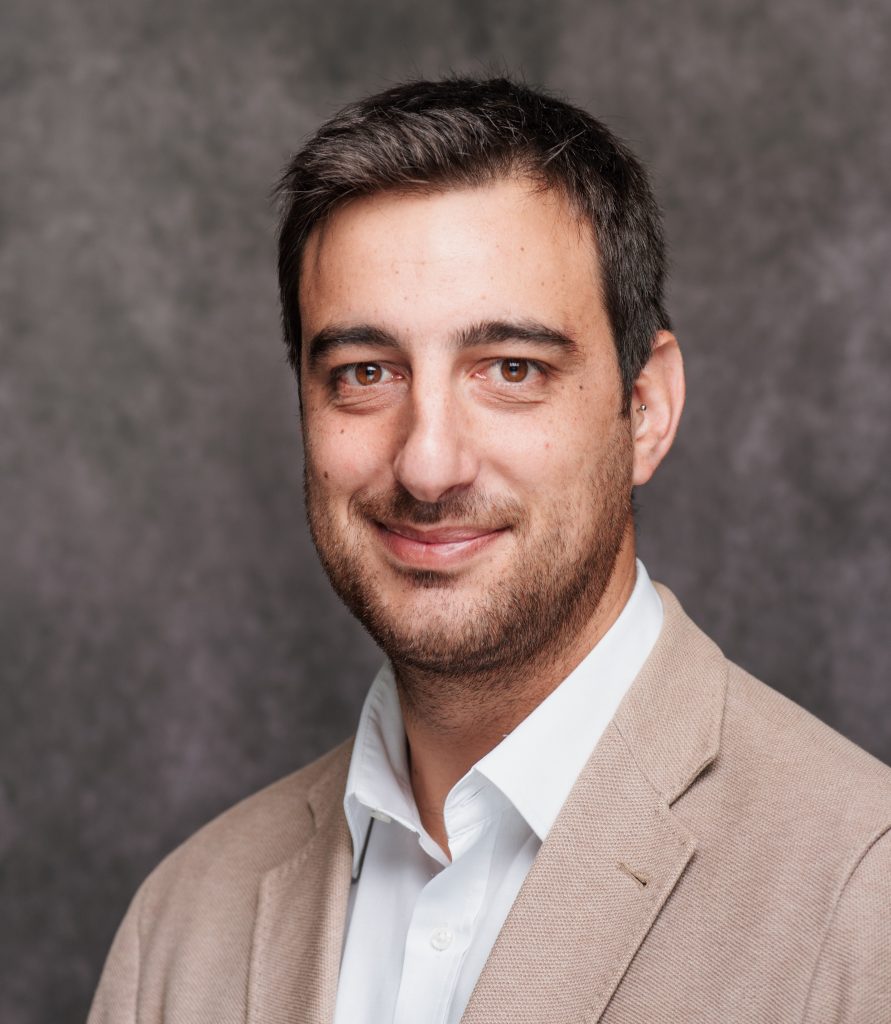 João P. Ribau is a National Representative & Contact Point for Horizon Europe at ANI – Agência Nacional de Inovação, focusing on Industry, Digital, and European Innovation Council (EIC) themes. ANI´s Portugal´s National Innovation Agency, is the public entity in charge of knowledge valorization, promotion of knowledge-based innovation through collaboration and entrepreneurship, interface between business & academia , and which through its Delegates and NCPs, leverage of the performance of national participants in European funding. João P. Ribau has a Ph.D in Mechanical Engineering from IST, with work in life cycle analysis and optimization techniques applied to energy vectors and alternative powertrains for vehicles. With previous experience as Head of an R&D unit at ISQ, and as a researcher, some previous activities include R&D team coordination, Project managing, in several National and International programmes, and research in industry4.0, digital solutions, modelling, decision and optimization, machine learning, IoT solutions, circular-economy, water-energy nexus, life cycle analysis, and alternative energies and energy-efficiency.
João P. Ribau is a National Representative & Contact Point for Horizon Europe at ANI – Agência Nacional de Inovação, focusing on Industry, Digital, and European Innovation Council (EIC) themes. ANI´s Portugal´s National Innovation Agency, is the public entity in charge of knowledge valorization, promotion of knowledge-based innovation through collaboration and entrepreneurship, interface between business & academia , and which through its Delegates and NCPs, leverage of the performance of national participants in European funding. João P. Ribau has a Ph.D in Mechanical Engineering from IST, with work in life cycle analysis and optimization techniques applied to energy vectors and alternative powertrains for vehicles. With previous experience as Head of an R&D unit at ISQ, and as a researcher, some previous activities include R&D team coordination, Project managing, in several National and International programmes, and research in industry4.0, digital solutions, modelling, decision and optimization, machine learning, IoT solutions, circular-economy, water-energy nexus, life cycle analysis, and alternative energies and energy-efficiency.
Jorge Correia, University of Lisbon (Portugal)
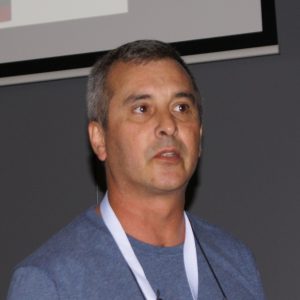
Jorge Correia is a researcher in the field of electrochemistry. Leader of the Interfacial Electrochemistry & Nanomaterials Unit of the Centro de Química Estrutural, Faculty of Sciences site, University of Lisbon, where he has been since 2000, he also spent 15 years in the Renewable Energies Department of the present LNEG. His scientific interests are focused on the fundamental aspects of interfacial electrochemistry, with particular emphasis on electronically conductive polymers. It has always explored the synergies of the coupling of optical and electrochemical techniques, for the study of these materials with applications in the fields of energy conversion and storage.
JR DeShazo, LBJ School of Public Affairs, The University of Texas at Austin (USA)
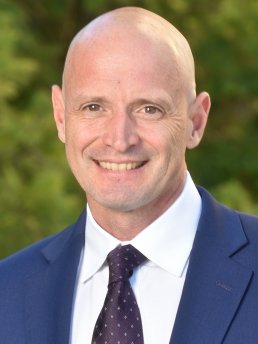 JR DeShazo is the 12th dean of the LBJ School of Public Affairs. He previously served as the founding director of the Luskin Center for Innovation at the University of California, Los Angeles (UCLA), one of the nation’s leading environmental policy research centers. He is a distinguished scholar focusing on clean technology policies, policy design to enhance environmental equity, methods for valuing changes in environmental quality, and the performance of public agencies. In his leadership roles, DeShazo has made faculty research and student experience key priorities. He led campus-wide interdisciplinary research efforts, enhanced training and mentorship of students, and spearheaded efforts to increase representation among bothfaculty and students. DeShazo was also responsible for fostering strategic partnerships with leading organizations, including the Congressional Hispanic Caucus Institute and the Ralph J. Bunche Center for African American Studies. Through his research and appointments, he has served as a policy adviser to international organizations such as the World Bank, the Asian Development Bank and the United Nations, as well federal agencies such as the National Science Foundation, the Department of Energy, the Department of Transportation and the Environmental Protection Agency. DeShazo earned a doctorate in Urban Planning from Harvard University, a master’s in Development Economics from Oxford University, where he was a Rhodes Scholar, and a bachelor’s degree from the College of William & Mary.
JR DeShazo is the 12th dean of the LBJ School of Public Affairs. He previously served as the founding director of the Luskin Center for Innovation at the University of California, Los Angeles (UCLA), one of the nation’s leading environmental policy research centers. He is a distinguished scholar focusing on clean technology policies, policy design to enhance environmental equity, methods for valuing changes in environmental quality, and the performance of public agencies. In his leadership roles, DeShazo has made faculty research and student experience key priorities. He led campus-wide interdisciplinary research efforts, enhanced training and mentorship of students, and spearheaded efforts to increase representation among bothfaculty and students. DeShazo was also responsible for fostering strategic partnerships with leading organizations, including the Congressional Hispanic Caucus Institute and the Ralph J. Bunche Center for African American Studies. Through his research and appointments, he has served as a policy adviser to international organizations such as the World Bank, the Asian Development Bank and the United Nations, as well federal agencies such as the National Science Foundation, the Department of Energy, the Department of Transportation and the Environmental Protection Agency. DeShazo earned a doctorate in Urban Planning from Harvard University, a master’s in Development Economics from Oxford University, where he was a Rhodes Scholar, and a bachelor’s degree from the College of William & Mary.
Lifeng Liu, INL – International Nanotechnology Laboratory (Portugal)
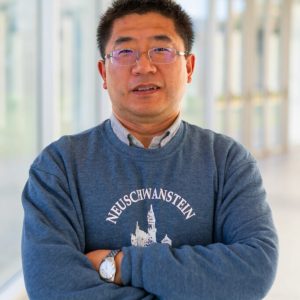 Lifeng Liu is currently the Leader of the Nanomaterials for Energy Storage and Conversion (NESC) group at INL. His group has been working on the development of new nanostructured materials and their applications in electrochemical energy storage and conversion including water splitting, solar fuel production, rechargeable batteries, and supercapacitors. Lifeng Liu has a PhD degree in Condensed Matter Physics from the Chinese Academy of Sciences and did his post-doctoral work at Max Planck Institute of Microstructure Physics during 2007-2009. Before joining INL in 2011, He was a staff scientist and group leader at Max-Planck Institute of Microstructure Physics. He was the recipient of FCT Investigator Grant 2014, Young Researcher Award 2015 by the Portuguese Electrochemical Society, the Scientist Medal 2018 by the International Association of Advanced Materials (IAAM), and the Emerging Investigator 2019 elected by RSC journal “Chemical Communications”.
Lifeng Liu is currently the Leader of the Nanomaterials for Energy Storage and Conversion (NESC) group at INL. His group has been working on the development of new nanostructured materials and their applications in electrochemical energy storage and conversion including water splitting, solar fuel production, rechargeable batteries, and supercapacitors. Lifeng Liu has a PhD degree in Condensed Matter Physics from the Chinese Academy of Sciences and did his post-doctoral work at Max Planck Institute of Microstructure Physics during 2007-2009. Before joining INL in 2011, He was a staff scientist and group leader at Max-Planck Institute of Microstructure Physics. He was the recipient of FCT Investigator Grant 2014, Young Researcher Award 2015 by the Portuguese Electrochemical Society, the Scientist Medal 2018 by the International Association of Advanced Materials (IAAM), and the Emerging Investigator 2019 elected by RSC journal “Chemical Communications”.
Pedro Salomé, International Nanotechnology Laboratory (Portugal)
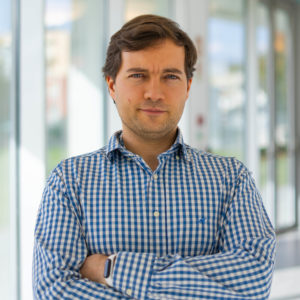 Pedro Salomé is the group leader of the Nanofabrication for Optoelectronic Applications group (NOA) and received his Diploma in Physics Engineering and Doctoral degree in the field of Applied Physics from the University of Aveiro, Portugal, in 2006 and 2011, respectively. During his PhD studies, he performed short research stays at the Helmholtz Zentrum Berlin, Germany, and at the Federal University of Minas Gerais, Brazil. Between 2011 and 2013 he was the project manager of an industrial collaboration between the Ångström Solar Center, at Uppsala University, Sweden, and Corning Inc., USA. In 2013 he was awarded with a Marie Curie Individual Intra European Fellowship (IEF) and moved to the International Iberian nanotechnology laboratory (INL). In 2015 he was hired as a staff researcher by INL and in 2016 he was awarded by the Portuguese Foundation for science and technology (FCT) with an FCT Investigator starting grant to fund his independent group. in January 2017, INL promoted him to a group leader. Pedro also holds a guest Assistant Professorship position at the Department of Physics at the University of Aveiro.
Pedro Salomé is the group leader of the Nanofabrication for Optoelectronic Applications group (NOA) and received his Diploma in Physics Engineering and Doctoral degree in the field of Applied Physics from the University of Aveiro, Portugal, in 2006 and 2011, respectively. During his PhD studies, he performed short research stays at the Helmholtz Zentrum Berlin, Germany, and at the Federal University of Minas Gerais, Brazil. Between 2011 and 2013 he was the project manager of an industrial collaboration between the Ångström Solar Center, at Uppsala University, Sweden, and Corning Inc., USA. In 2013 he was awarded with a Marie Curie Individual Intra European Fellowship (IEF) and moved to the International Iberian nanotechnology laboratory (INL). In 2015 he was hired as a staff researcher by INL and in 2016 he was awarded by the Portuguese Foundation for science and technology (FCT) with an FCT Investigator starting grant to fund his independent group. in January 2017, INL promoted him to a group leader. Pedro also holds a guest Assistant Professorship position at the Department of Physics at the University of Aveiro.
Peter Lund, Aalto University (Finland)
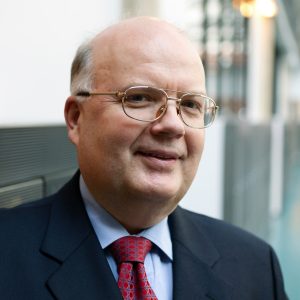
Peter D. Lund is Professor in Engineering Physics and Advanced Energy Systems at Aalto University, Finland. He has close to 40 years’ experience in energy technologies, innovations, systems, and policies. His visiting positions include Hubei University (Wuhan), Technical University of Dresden (Germany), Southeast University (Nanjing). Honorary Professor at Southeast University. Dr. Lund is active in senior roles with European Union initiatives in energy: he chaired the Advisory Group Energy of European Commission 2002-06, past chair of the Energy Steering Panel of European Academies Science Advisory Council, past member of Euro-CASE and European University Association’s energy platforms, co-chaired the energy group of Science Advice for Policies by European Academies. He has served in advisory role for many energy programs worldwide incl. IEA. He is member of the Swedish Engineering Academy in Finland and Finnish Academy of Science and Letters. Dr. Lund is Co-Editor-in-Chief for Interdisciplinary Reviews: Energy&Environment (Wiley). Editor-in-Chief of Oxford Open Energy (OUP). He is vice-chair of the Finnish Climate Panel. He has given many invited talks, published over 350 journal papers, and received several awards, lastly the Jiangsu Friendship Award and Medal (China) in 2020.
Robert Hebner, Center for Electromechanics, the University of Texas at Austin (USA)
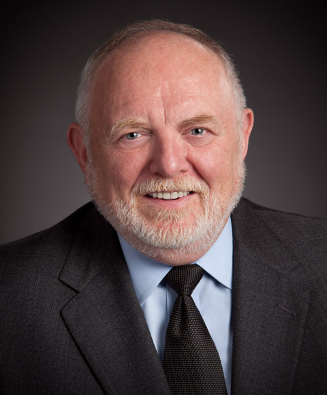 Bob Hebner is the Director of the Center for Electromechanics at the University of Texas at Austin. The Center develops advanced technology, generally in the areas of power and energy, and teams with companies to get the technology into the market. Important current projects involve transportation electrification, growth of hydrogen in transportation and electric power, nanodielectrics, and grid resiliency. Before joining the University of Texas, he spent many years at the National Institute of Standards and Technology (NIST), much of it as a member of the Senior Executive Service, culminating his time there acting as Director. Much of his management effort at NIST focused on removing technical barriers to trade. He also worked in the Office of Management and Budget, at the Defense Advanced Research Projects Agency and at Sandia National Laboratory. Throughout his career, Dr. Hebner has been active technically having authored or coauthored more than two hundred technical papers and reports. He is a fellow of the IEEE. He spent three years as a member of the IEEE Board of Directors and has served as Chair of the Board of the Center for Transportation and the Environment.
Bob Hebner is the Director of the Center for Electromechanics at the University of Texas at Austin. The Center develops advanced technology, generally in the areas of power and energy, and teams with companies to get the technology into the market. Important current projects involve transportation electrification, growth of hydrogen in transportation and electric power, nanodielectrics, and grid resiliency. Before joining the University of Texas, he spent many years at the National Institute of Standards and Technology (NIST), much of it as a member of the Senior Executive Service, culminating his time there acting as Director. Much of his management effort at NIST focused on removing technical barriers to trade. He also worked in the Office of Management and Budget, at the Defense Advanced Research Projects Agency and at Sandia National Laboratory. Throughout his career, Dr. Hebner has been active technically having authored or coauthored more than two hundred technical papers and reports. He is a fellow of the IEEE. He spent three years as a member of the IEEE Board of Directors and has served as Chair of the Board of the Center for Transportation and the Environment.
Stephan DeLuca, Energy Materials Corporation (USA)
 Drawing on an extensive 30-year background in corporate management, sales & marketing and product engineering, Stephan has a spent the last fourteen years relentlessly pursuing low cost, simplified solar module manufacturability. In 2006 he was recruited as a turn-around CEO for a publicly traded start-up solar thin-film manufacturing company DayStar Technologies (DSTI) where he experienced firsthand the massive capital demand of scaling low throughput PV manufacturing. Prior to DayStar, he held multiple positions with Inficon and Leybold Inficon where he built a new EHS business unit, started up 5 subsidiaries in Asia while located in Taiwan from 200-2003 as President of Asia Operations. Stephan holds a Ph.D. in Applied Chemistry and an M.S. in Geochemistry from Colorado School of Mines, an MBA from Syracuse University and a B.A. in Chemistry from the University of California, San Diego.
Drawing on an extensive 30-year background in corporate management, sales & marketing and product engineering, Stephan has a spent the last fourteen years relentlessly pursuing low cost, simplified solar module manufacturability. In 2006 he was recruited as a turn-around CEO for a publicly traded start-up solar thin-film manufacturing company DayStar Technologies (DSTI) where he experienced firsthand the massive capital demand of scaling low throughput PV manufacturing. Prior to DayStar, he held multiple positions with Inficon and Leybold Inficon where he built a new EHS business unit, started up 5 subsidiaries in Asia while located in Taiwan from 200-2003 as President of Asia Operations. Stephan holds a Ph.D. in Applied Chemistry and an M.S. in Geochemistry from Colorado School of Mines, an MBA from Syracuse University and a B.A. in Chemistry from the University of California, San Diego.
Syed Ghufran Hashmi, University of Oulu (Finland)
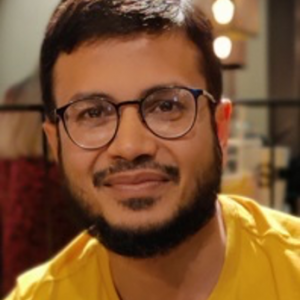 Syed Ghufran Hashmi is Tenure Track Assistant Professor in Printed Electronics at Microelectronics Research Unit of University of Oulu-Finland. He has received numerous prestigious funding in the capacity of Project Leader and Principal Investigator from leading funding organizations including Academy of Finland, Technology Industries of Finland Centennial Foundation, Jane and Aatos Erkko Foundation and Business Finland for the research and development of next generation of photovoltaics devices such as Dye-sensitized solar cells and Perovskite Solar Cells. He received his D.Sc Degree in Engineering Physics from Aalto University – Finland in 2014. Before that, he received his M.Sc Degree in Micro- and Nanotechnology from Helsinki University of Technology – Finland in 2009 and BS Degree in Biomedical Engineering from Sir Syed University of Engineering and Technology – Pakistan in 2002. He has authored nearly 30 scientific publications, which have received > 1000 citations. His research interests include Solar Cells, Printed Electronics, Energy Harvesting, Solar Fuels, Printable Batteries and Super-capacitors.
Syed Ghufran Hashmi is Tenure Track Assistant Professor in Printed Electronics at Microelectronics Research Unit of University of Oulu-Finland. He has received numerous prestigious funding in the capacity of Project Leader and Principal Investigator from leading funding organizations including Academy of Finland, Technology Industries of Finland Centennial Foundation, Jane and Aatos Erkko Foundation and Business Finland for the research and development of next generation of photovoltaics devices such as Dye-sensitized solar cells and Perovskite Solar Cells. He received his D.Sc Degree in Engineering Physics from Aalto University – Finland in 2014. Before that, he received his M.Sc Degree in Micro- and Nanotechnology from Helsinki University of Technology – Finland in 2009 and BS Degree in Biomedical Engineering from Sir Syed University of Engineering and Technology – Pakistan in 2002. He has authored nearly 30 scientific publications, which have received > 1000 citations. His research interests include Solar Cells, Printed Electronics, Energy Harvesting, Solar Fuels, Printable Batteries and Super-capacitors.
Tushar Shimpi, Colorado State University (USA)
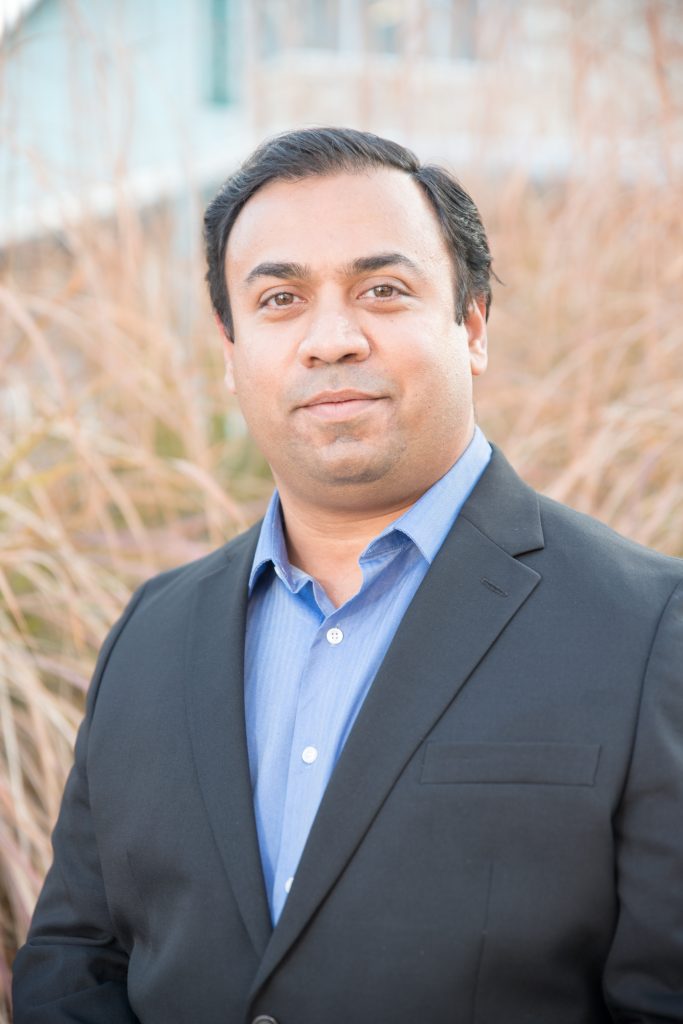 Currently working on Sputter Deposition of Cadmium Zinc Telluride Films. Cadmium Zinc Telluride (CZT) is a high band gap material. It has a potential for a top cell in a multi junction solar cell and also holds a promise to form an electron reflector when deposited on the back of CdTe devices. My focus is to carry out deposition of CZT films by RF sputtering on various devices structures. The structures are then characterized by using different tools and the performance is tested under standard conditions.
Currently working on Sputter Deposition of Cadmium Zinc Telluride Films. Cadmium Zinc Telluride (CZT) is a high band gap material. It has a potential for a top cell in a multi junction solar cell and also holds a promise to form an electron reflector when deposited on the back of CdTe devices. My focus is to carry out deposition of CZT films by RF sputtering on various devices structures. The structures are then characterized by using different tools and the performance is tested under standard conditions.
Upul Wijayantha, Loughborough University (UK)
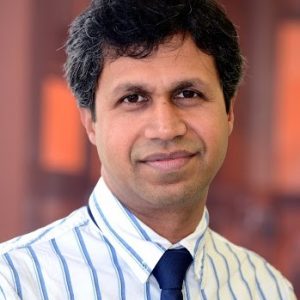 Upul Wijayantha is a Professor of Physical Chemistry at Loughborough University, UK. His experience and expertise include industrial product development (2002 – 2006), circular economy, low-cost zero carbon Hydrogen, electrochemical energy storage and energy materials (1995 – 2001 & 2007 – 2021). He currently serves in two technical task groups of hydrogen technologies in International Energy Agency. He is a co-director of UK EPSRC Centre of Doctoral Training in Sustainable Hydrogen (2019 – 2027). Recently he led a large group of academics, over 300 industries and local government representatives to develop the UK Midlands pan regional green growth plan (https://www.lboro.ac.uk/news-events/news/2021/august/academics-contribute-to-ten-point-plan-for-green/) and also advised to formulate recently unveiled UK Hydrogen Strategy to steer government commitments to meet the Net Zero targets by 2050. He has served in industrial advisory boards and has been worked as a project reviewer and a panel member of funding agencies in many countries.
Upul Wijayantha is a Professor of Physical Chemistry at Loughborough University, UK. His experience and expertise include industrial product development (2002 – 2006), circular economy, low-cost zero carbon Hydrogen, electrochemical energy storage and energy materials (1995 – 2001 & 2007 – 2021). He currently serves in two technical task groups of hydrogen technologies in International Energy Agency. He is a co-director of UK EPSRC Centre of Doctoral Training in Sustainable Hydrogen (2019 – 2027). Recently he led a large group of academics, over 300 industries and local government representatives to develop the UK Midlands pan regional green growth plan (https://www.lboro.ac.uk/news-events/news/2021/august/academics-contribute-to-ten-point-plan-for-green/) and also advised to formulate recently unveiled UK Hydrogen Strategy to steer government commitments to meet the Net Zero targets by 2050. He has served in industrial advisory boards and has been worked as a project reviewer and a panel member of funding agencies in many countries.
Uwe Seidel, IPCEI – Important Projects of Common European Interest (Germany)
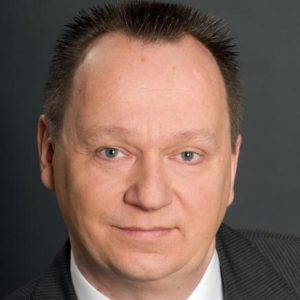 Uwe Seidel studied business management and is a senior project manager in the area of „Mobility, Energy and Future Technologies” » at VDI/VDE-IT in Germany. He is head of the section “Systemic Environmental Innovation and Industrial Policy” and has a sound knowledge and many years of experience in the analysis of innovation systems and accompanying research towards systemically implemented innovation concepts. With great dedication he supports innovation eco-systems, technology-oriented company foundations and their business models. Uwe is currently programme manager of the European IPCEI projects to promote battery production in Europe.
Uwe Seidel studied business management and is a senior project manager in the area of „Mobility, Energy and Future Technologies” » at VDI/VDE-IT in Germany. He is head of the section “Systemic Environmental Innovation and Industrial Policy” and has a sound knowledge and many years of experience in the analysis of innovation systems and accompanying research towards systemically implemented innovation concepts. With great dedication he supports innovation eco-systems, technology-oriented company foundations and their business models. Uwe is currently programme manager of the European IPCEI projects to promote battery production in Europe.
Vanesa Gil, ARAID Aragon Hydrogen Foundation and FHa (Spain)
 Vanesa Gil is ARAID Senior Researcher and Head of R&D Department at Aragon Hydrogen Foundation (FHa, SPAIN). She is responsible for bringing novel and disruptive technologies from components research to full integration for addressing proof-of-concepts (TRL 3) and validate at pilot scale and relevant environment (TRL5). She is a chemist and holds a Ph.D in Materials science (graduated 2006 from Universidad Autónoma de Madrid) in the field of new materials for ceria-based solid oxide fuel cells. She has over 15 years of international experience in developing novel materials and advanced devices for energy conversion and storage technologies related with Hydrogen and other renewable gases. She works globally to connect all the key players within the value chain, from the scientific community to industrial partners. Depth competences in high temperature fuel cells/electrolyzers, low temperature water electrolysers and dense ceramic membranes. As scientist, strong experience in ceramic processing and materials development. Increasingly working on demo projects and the integration of renewable energy.
Vanesa Gil is ARAID Senior Researcher and Head of R&D Department at Aragon Hydrogen Foundation (FHa, SPAIN). She is responsible for bringing novel and disruptive technologies from components research to full integration for addressing proof-of-concepts (TRL 3) and validate at pilot scale and relevant environment (TRL5). She is a chemist and holds a Ph.D in Materials science (graduated 2006 from Universidad Autónoma de Madrid) in the field of new materials for ceria-based solid oxide fuel cells. She has over 15 years of international experience in developing novel materials and advanced devices for energy conversion and storage technologies related with Hydrogen and other renewable gases. She works globally to connect all the key players within the value chain, from the scientific community to industrial partners. Depth competences in high temperature fuel cells/electrolyzers, low temperature water electrolysers and dense ceramic membranes. As scientist, strong experience in ceramic processing and materials development. Increasingly working on demo projects and the integration of renewable energy.
Yong-Hang Zhang, Arizona State University (USA)
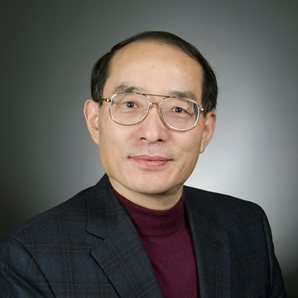 Yong-Hang Zhang is a Professor of Electrical Engineering and the founding director of the Center for Photonics Innovation at ASU. His primary research is on the growth, fabrication and characterization of novel optoelectronic materials and devices with focus on narrow-gap semiconductors, IR detectors, and solar cells. His recent work focuses on InAs/InAsSb type-II superlattice and IR detectors and thin-film (GaAs/AlGaAs and CdTe/MgCdTe) solar cells for space and terrestrial applications. He did his thesis research at the Max Planck Institute for Solid States Research and received his doctoral degree in physics from the University of Stuttgart in 1991. He then worked as an Assistant Research Engineer at UCSB before he joined HRL in 1993. In 1996, he was appointed as an Associate Professor at ASU and became a full professor in 2000. He served as the Associate Dean for Research at the Ira Fulton Schools of Engineering and the Director of ASU Nanofab. He edited 4 books, published 4 book chapters and more than 310 peer-reviewed papers, 19 issued and pending US patents, presented close to 430 invited and contributed talks, and graduated 28 PhD students and supervised over 40 postdocs and visiting scholars. He is a fellow of IEEE and OSA, and the chair of both Advisory Committees for the International Conference on Molecular Beam Epitaxy (MBE) and the International North America MBE Conference.
Yong-Hang Zhang is a Professor of Electrical Engineering and the founding director of the Center for Photonics Innovation at ASU. His primary research is on the growth, fabrication and characterization of novel optoelectronic materials and devices with focus on narrow-gap semiconductors, IR detectors, and solar cells. His recent work focuses on InAs/InAsSb type-II superlattice and IR detectors and thin-film (GaAs/AlGaAs and CdTe/MgCdTe) solar cells for space and terrestrial applications. He did his thesis research at the Max Planck Institute for Solid States Research and received his doctoral degree in physics from the University of Stuttgart in 1991. He then worked as an Assistant Research Engineer at UCSB before he joined HRL in 1993. In 1996, he was appointed as an Associate Professor at ASU and became a full professor in 2000. He served as the Associate Dean for Research at the Ira Fulton Schools of Engineering and the Director of ASU Nanofab. He edited 4 books, published 4 book chapters and more than 310 peer-reviewed papers, 19 issued and pending US patents, presented close to 430 invited and contributed talks, and graduated 28 PhD students and supervised over 40 postdocs and visiting scholars. He is a fellow of IEEE and OSA, and the chair of both Advisory Committees for the International Conference on Molecular Beam Epitaxy (MBE) and the International North America MBE Conference.
About the training program’s coordinators:
Killian Lobato, University of Lisbon, Portugal
 Killian Lobato is an Assistant Professor at the Faculty of Sciences of the University of Lisbon. Since his PhD days (graduated 2007 from University of Bath) he has worked on nanomaterials for energy conversion and storage. He also has other research interests, such as Solar Resource in Complex Urban Environments and Operation and Maintenance of Photovoltaic systems. Regarding his research in nanomaterials for energy conversion and storage, he currently works on the development of nanostructured metal oxides for perovskite solar cells, laser structured carbon-based supercapacitor electrodes, laser annealing for CIGS solar cells, and quantum tunnelling junctions formed by laser doping for silicon/perovskite monolithic tandem solar cells. He lectures undergraduate and postgraduate courses in Solar PV materials and technologies, solar resource, electrochemical energy storage & conversion, and management of renewable energy systems.
Killian Lobato is an Assistant Professor at the Faculty of Sciences of the University of Lisbon. Since his PhD days (graduated 2007 from University of Bath) he has worked on nanomaterials for energy conversion and storage. He also has other research interests, such as Solar Resource in Complex Urban Environments and Operation and Maintenance of Photovoltaic systems. Regarding his research in nanomaterials for energy conversion and storage, he currently works on the development of nanostructured metal oxides for perovskite solar cells, laser structured carbon-based supercapacitor electrodes, laser annealing for CIGS solar cells, and quantum tunnelling junctions formed by laser doping for silicon/perovskite monolithic tandem solar cells. He lectures undergraduate and postgraduate courses in Solar PV materials and technologies, solar resource, electrochemical energy storage & conversion, and management of renewable energy systems.
Brian Korgel, The University of Texas at Austin, USA
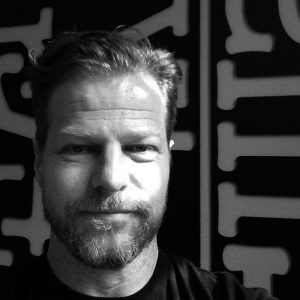 Brian A. Korgel is the Rashid Engineering Regents Chair Professor in the McKetta Department of Chemical Engineering at The University of Texas at Austin. Education and Outreach Director for the Center for Dynamics and Control of Materials (CDCM) Materials Research Science and Engineering Center (MRSEC), he also directs the Industry/University Cooperative Research Center (IUCRC) for Next Generation Photovoltaics, the Nanotechnologies area of the UT Austin Portugal Program at UT, side by side with Carla Silva and Paulo Ferreira, and serves as Associate Editor of the journal, Chemistry of Materials. He has been Visiting Professor at the University of Alicante in Spain, the Université Josef Fourier in France and the Chinese Academy of Sciences in Beijing. Brian A. Korgel will be the next director of the Energy Institute at The University of Texas at Austin, effective September 1, 2021. He received his PhD in Chemical Engineering from UCLA in 1997 and was a post-doctoral fellow at University College Dublin, Ireland, in the Department of Chemistry. He has given more than 260 invited talks and has published 250 papers. He is also an artist, exploring language and human/technology cohabitation. Brian A. Korgel has co-founded two companies, Innovalight and Piñon Technologies, and received various honors including the 2012 Professional Progress Award from the American Institute of Chemical Engineers (AIChE) and election to Fellow of the American Association for the Advancement of Science (AAAS). He is also a member of the National Academy of Engineering (NAE).
Brian A. Korgel is the Rashid Engineering Regents Chair Professor in the McKetta Department of Chemical Engineering at The University of Texas at Austin. Education and Outreach Director for the Center for Dynamics and Control of Materials (CDCM) Materials Research Science and Engineering Center (MRSEC), he also directs the Industry/University Cooperative Research Center (IUCRC) for Next Generation Photovoltaics, the Nanotechnologies area of the UT Austin Portugal Program at UT, side by side with Carla Silva and Paulo Ferreira, and serves as Associate Editor of the journal, Chemistry of Materials. He has been Visiting Professor at the University of Alicante in Spain, the Université Josef Fourier in France and the Chinese Academy of Sciences in Beijing. Brian A. Korgel will be the next director of the Energy Institute at The University of Texas at Austin, effective September 1, 2021. He received his PhD in Chemical Engineering from UCLA in 1997 and was a post-doctoral fellow at University College Dublin, Ireland, in the Department of Chemistry. He has given more than 260 invited talks and has published 250 papers. He is also an artist, exploring language and human/technology cohabitation. Brian A. Korgel has co-founded two companies, Innovalight and Piñon Technologies, and received various honors including the 2012 Professional Progress Award from the American Institute of Chemical Engineers (AIChE) and election to Fellow of the American Association for the Advancement of Science (AAAS). He is also a member of the National Academy of Engineering (NAE).
Carla Silva, CITEVE, Portugal
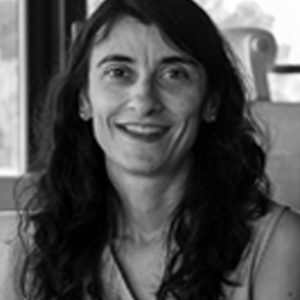 Carla Silva is the Director of the Department of Chemistry and Biotechnology at the Technological Centre for the Textile and Clothing Industry of Portugal (CITEVE), Portugal, having deep knowledge and experience in the implementation of nanotechnological and biotechnological processes for the textile, automotive, medical and construction industries. She graduated in Biological Engineering at the University of Minho in 1996 and started working as a superior technician at the Portuguese Technological Centre for the Textile Industries (CITEVE), where she had her first close contact with textile research. Later, she attained her Masters in Industrial Biotechnology at S. Paulo University and in 2005 she finished her Ph.D. in Textile Chemistry at the University of Minho. From 2007-2019 she worked as a senior researcher and later as Chief Technology Officer at CeNTI (Centre for Nanotechnology and Smart Materials). With more than 20 years of experience in applied and industry-oriented research, 6 granted patents and more than 40 published papers in peer-reviewed journals, she is responsible for the management and coordination of several national and international R&D projects covering various research topics.
Carla Silva is the Director of the Department of Chemistry and Biotechnology at the Technological Centre for the Textile and Clothing Industry of Portugal (CITEVE), Portugal, having deep knowledge and experience in the implementation of nanotechnological and biotechnological processes for the textile, automotive, medical and construction industries. She graduated in Biological Engineering at the University of Minho in 1996 and started working as a superior technician at the Portuguese Technological Centre for the Textile Industries (CITEVE), where she had her first close contact with textile research. Later, she attained her Masters in Industrial Biotechnology at S. Paulo University and in 2005 she finished her Ph.D. in Textile Chemistry at the University of Minho. From 2007-2019 she worked as a senior researcher and later as Chief Technology Officer at CeNTI (Centre for Nanotechnology and Smart Materials). With more than 20 years of experience in applied and industry-oriented research, 6 granted patents and more than 40 published papers in peer-reviewed journals, she is responsible for the management and coordination of several national and international R&D projects covering various research topics.
Guilherme Gaspar, University of Lisbon, Portugal
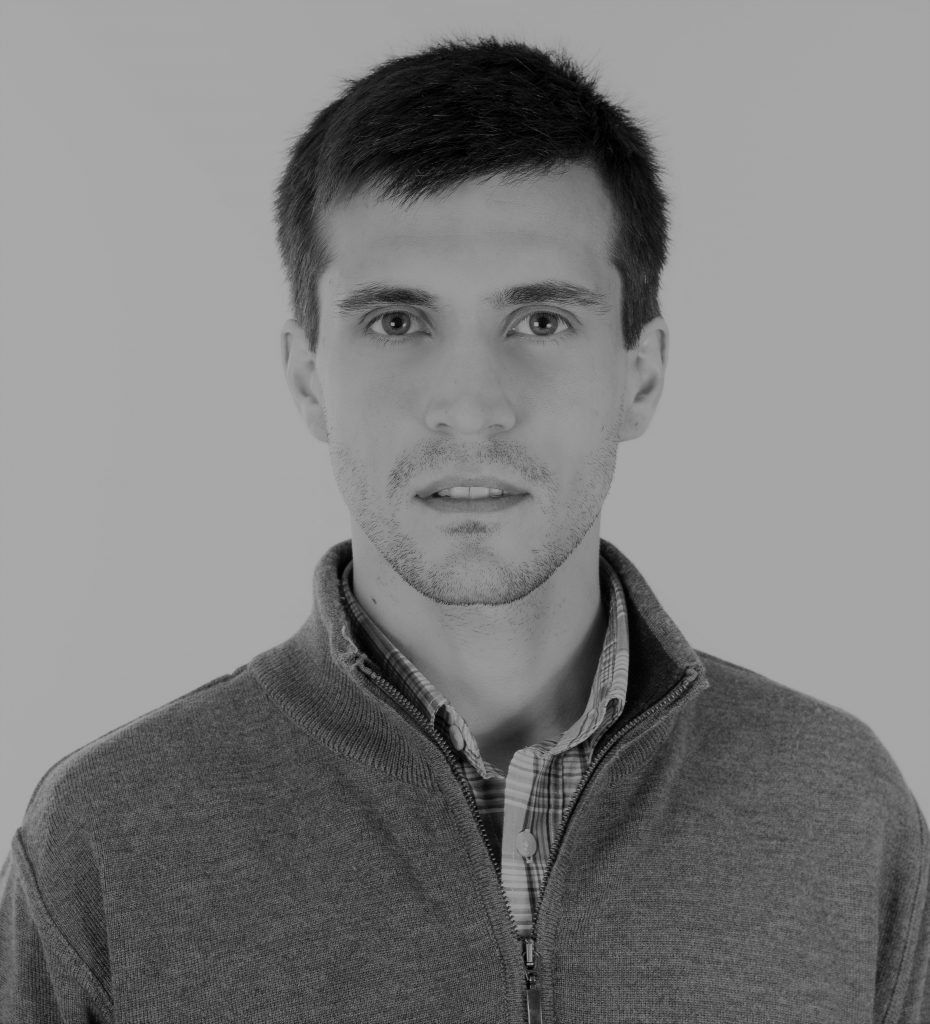 Since 2019, Guilherme Gaspar has been a Research Scientist at the Institute Dom Luiz (IDL) and Invited Assistant Professor at Faculty of Sciences of the University of Lisbon, where he works on nanomaterials for solar cells, supercapacitors and lithium-ion batteries, as well as on energy management of PV-storage systems. In 2016, he obtained his Ph.D. in Materials Science and Engineering from Norwegian University of Science and Technology, where his research work was focused on industrial-scale CZ silicon growth for high performance solar cells. This work involved close collaboration with SINTEF, ECN and the Norwegian industry. Between 2016 and 2017 he was a post-doctoral researcher at the Nanoelectronic Materials and Devices group at the Tyndall National Institute, University College Cork. He was also post-doctoral research fellow at the Institute of Nanostructures, Nanomodelling and Nanofabrication (i3N), member of the CICECO-Aveiro Institute of Materials and teaching assistant at the Department of Physics of the University of Aveiro.
Since 2019, Guilherme Gaspar has been a Research Scientist at the Institute Dom Luiz (IDL) and Invited Assistant Professor at Faculty of Sciences of the University of Lisbon, where he works on nanomaterials for solar cells, supercapacitors and lithium-ion batteries, as well as on energy management of PV-storage systems. In 2016, he obtained his Ph.D. in Materials Science and Engineering from Norwegian University of Science and Technology, where his research work was focused on industrial-scale CZ silicon growth for high performance solar cells. This work involved close collaboration with SINTEF, ECN and the Norwegian industry. Between 2016 and 2017 he was a post-doctoral researcher at the Nanoelectronic Materials and Devices group at the Tyndall National Institute, University College Cork. He was also post-doctoral research fellow at the Institute of Nanostructures, Nanomodelling and Nanofabrication (i3N), member of the CICECO-Aveiro Institute of Materials and teaching assistant at the Department of Physics of the University of Aveiro.
Paulo Ferreira, INL and IST, Portugal
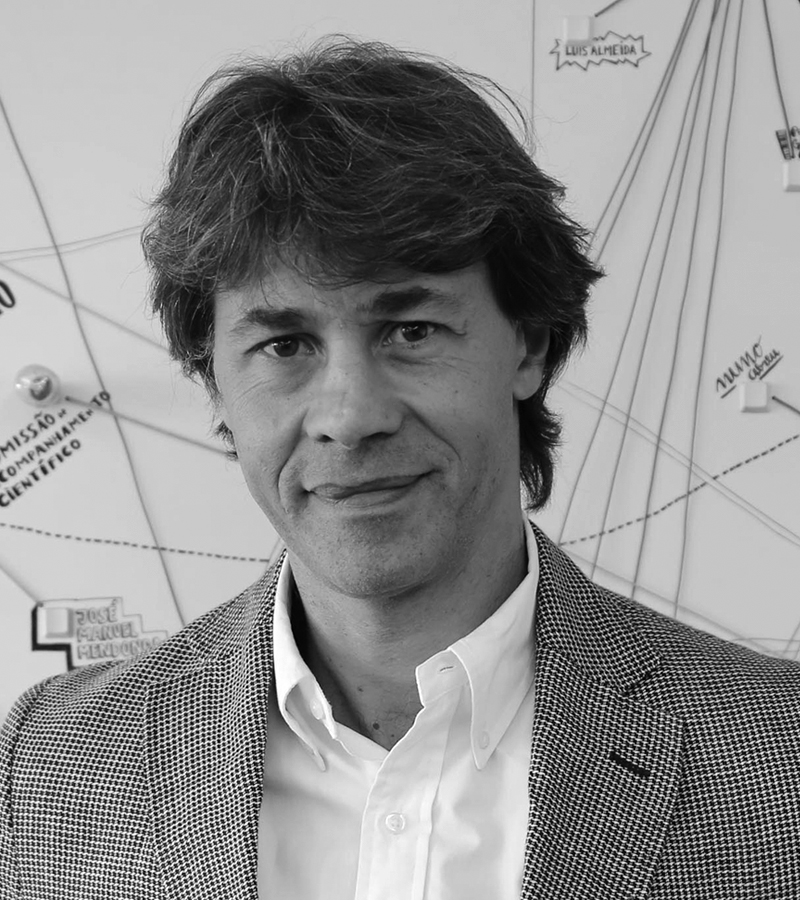 Paulo Ferreira is the Head of the Department of Advanced Electron Microscopy, Imaging and Spectroscopy at the International Iberian Nanotechnology Laboratory (INL). He is also a Full Professor in the Department of Mechanical Engineering at IST, University of Lisbon, and an Adjunct Professor, Robert & Jane Mitchell Endowed Faculty Fellowship in Engineering in the Materials Science and Engineering Program at the University of Texas at Austin. He was Robert & Jane Mitchell Endowed Faculty Fellowship in Engineering and Full Professor at the University of Texas at Austin, and the Director of Electron Microscopy at the Texas Materials Institute at the same University. He has a Ph.D. in Materials Science and Engineering from the University of Illinois and has done his Post-doctoral work at MIT in Materials Science and Engineering. Paulo Ferreira teaches graduate courses in Nanomaterials and Nanotechnology, Structure and Electron Microscopy. He is co-author of three books, namely “Materials 2000”, IST Press, 2003, “Investing in the Future: University-Industry Collaborations in USA and Portugal”; and “Nanotechnology for Architects, Designers and Engineers”, and the author of 177 scientific articles. Paulo Ferreira has also acted as a special advisor to the Minister of Economics and Innovation, Portugal, on Government Strategy for Science & Technology.
Paulo Ferreira is the Head of the Department of Advanced Electron Microscopy, Imaging and Spectroscopy at the International Iberian Nanotechnology Laboratory (INL). He is also a Full Professor in the Department of Mechanical Engineering at IST, University of Lisbon, and an Adjunct Professor, Robert & Jane Mitchell Endowed Faculty Fellowship in Engineering in the Materials Science and Engineering Program at the University of Texas at Austin. He was Robert & Jane Mitchell Endowed Faculty Fellowship in Engineering and Full Professor at the University of Texas at Austin, and the Director of Electron Microscopy at the Texas Materials Institute at the same University. He has a Ph.D. in Materials Science and Engineering from the University of Illinois and has done his Post-doctoral work at MIT in Materials Science and Engineering. Paulo Ferreira teaches graduate courses in Nanomaterials and Nanotechnology, Structure and Electron Microscopy. He is co-author of three books, namely “Materials 2000”, IST Press, 2003, “Investing in the Future: University-Industry Collaborations in USA and Portugal”; and “Nanotechnology for Architects, Designers and Engineers”, and the author of 177 scientific articles. Paulo Ferreira has also acted as a special advisor to the Minister of Economics and Innovation, Portugal, on Government Strategy for Science & Technology.

